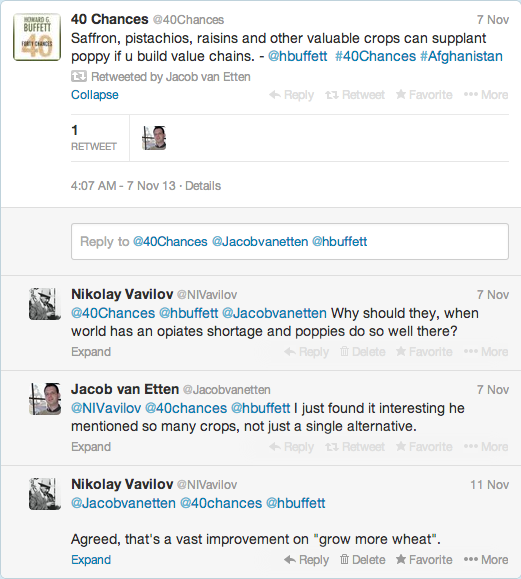A tweet caught my eye the other week.

40 Chances is the title of a project (and book) by Howard G Buffett, who has taken some interesting approaches to agriculture for development as he spends some of his dad’s money.
I don’t follow 40 chances, but our pal Jacob does. Our conversation is self-explanatory, if a little curt, and although I’m grateful to Jacob for opening my eyes to the point Buffett seems to be making — that there might be several diverse alternatives to poppies — nothing to write here about.
Then, a week later, I see an article in Foreign Policy explaining that Afghanistan’s harvest of opium in 2013 was 49 percent up on 2012. “This is the third consecutive year of increasing cultivation,” according to Jean-Luc Lemahieu, outgoing director of the UN Office on Drugs and Crime, which reported some numbers earlier this week. And the area under cultivation is up 36%.
Ah, the conflicts. Production is up, per hectare, but that’s a bad thing? Because drugs are bad. But only if they’re grown in Afghanistan. Not if they’re grown in Didcot, England, or Tasmania, or France, or Turkey, or India …
I’ve belaboured the point often enough here. There are well-thought out schemes for legalising Afghanistan’s poppy production. And as an aside, the US helped Turkey to transition to legal opiate production by guaranteeing to buy a 80% of its legal opium from India and Turkey.
So, just noting here that in case saffron, pistachios etc don’t work out either, there are alternatives.